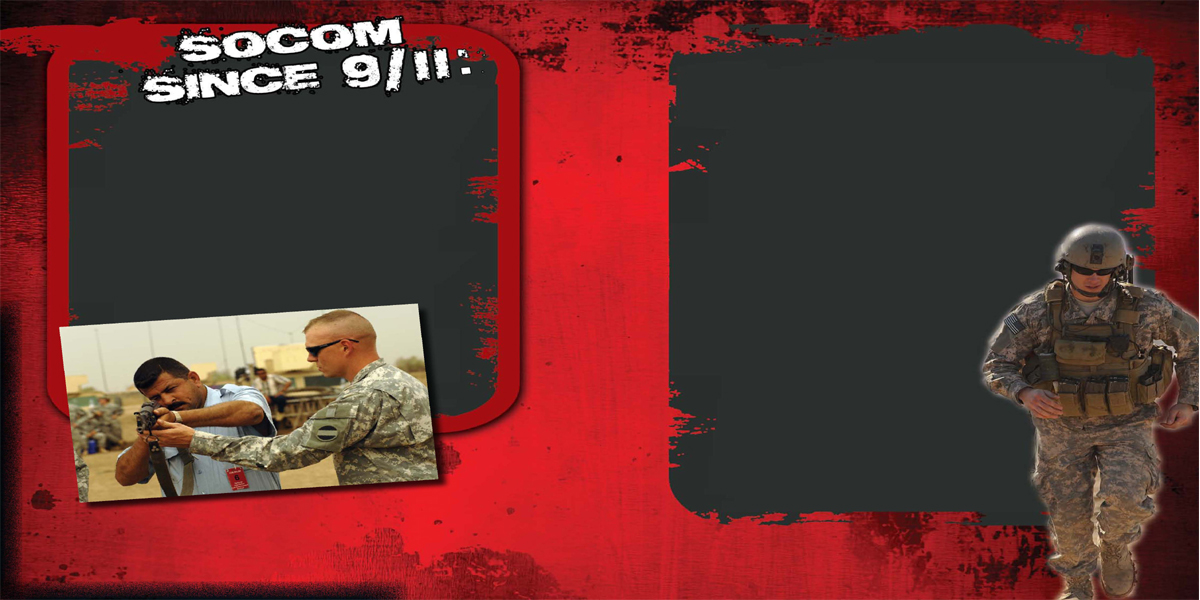
CHAPTER THREE
SOCOM SINCE 9/11:
THE NEW NORMAL
In the years since September 11, 2001, the U.S. has been involved in two major conflicts overseas. First, the U.S. invaded Afghanistan to wage war on suspected terrorist groups involved in the planning of the 9/11 attacks. The War in Afghanistan continues in 2013.
The U.S. also invaded Iraq in 2003. Although U.S. combat operations in Iraq stopped in 2010, these conflicts have caused Special Operations Command to expand.

During the wars in Iraq and Afghanistan, Special Operations personnel increasingly work as partners with local police and civilians, trying to identify those working in secret against the U.S. The military calls this work counterinsurgency.
1. HUMANS ARE MORE IMPORTANT THAN HARDWARE.
2. QUALITY IS BETTER THAN QUANTITY.
(A few specially trained fighters are more effective than a large force of untrained fighters)
3. PROPERLY TRAINED SPECIAL OPERATIONS FORCES CANNOT BE MASS-PRODUCED.
(Training special forces soldiers, sailors, and marines takes time and effort. There are no shortcuts to being ready for success in combat or other operations)
4. COMPETENT SPECIAL OPERATIONS FORCES CANNOT BE CREATED AFTER EMERGENCIES OCCUR.
(That’s too late. Their preparation makes them ready to deal with the emergency as it happens)
5. MOST SPECIAL OPERATIONS REQUIRE ASSISTANCE FROM THE ARMY, NAVY, AIR FORCE, OR MARINES.
(Special Operations Command is like the tip of a spear. The tip hits its target first, but it’s the whole spear behind it that constitutes the weapon. So too, does the U.S. military constitute the country’s overall fighting force)
In the years since the 9/11 attack, the number of Special Operations Command personnel has doubled. Its budget, or the money set aside by the U.S. Department of Defense to pay for the selection, training, and deployment of personnel, has tripled. Simply put, special operations have never been more important to the defense of the nation than they are today. This means talented, smart, and tough young adults will continually be in demand to fill the needs of this vital part of the U.S. military.

THE MILITARY INDUSTRIAL COMPLEX
Former President Dwight Eisenhower served as commander of the European theater during World War II, becoming arguably the greatest American military hero of the past century. As president however, he warned against placing too much value in military strength. He felt the cost of large-scale weapons and a massive military took money away from other national needs like education. His argument, which he called the Military Industrial Complex, remains a part of American politics to this very day.
President Dwight Eisenhower (1890-1969)
SOCOM’S MISSION STATEMENT
Provide fully capable Special Operations forces to defend the United States and its interests. Synchronize planning of global operations against terrorist networks.